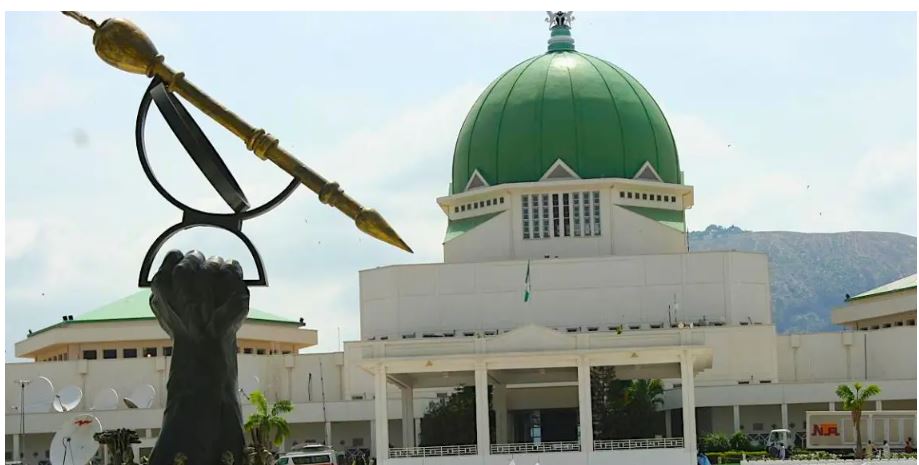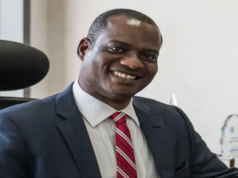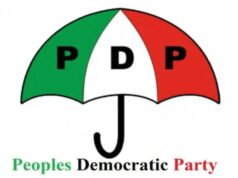
The claim by a senator, Abdul Ningi, that over N53 billion worth of projects in the 2024 Appropriations Act are without a specific location, is true, a check by PREMIUM TIMES has revealed.
The suspended lawmaker, who represents Bauchi Central Senatorial District, recently accused the leadership of the Senate of fraudulently smuggling projects into the 2024 budget.
The lawmaker, who was suspended by the Senate on Tuesday over the claim, had disclosed that he got experts to review the budget and discovered some projects that do not have locations.
A review of the document obtained by this newspaper as well as a review of the proposed 2024 budget and the one eventually passed by the lawmakers, indicate that there is substantial merit in Mr Ningi’s claim.
According to Mr Ningi’s document, the consultants traced 36 projects that are worth N53 billion though the projects have no specific locations they are to be sited.
Contents
The 2024 Budget
On 29 November 2023, President Bola Tinubu presented the N27.5 trillion budget to the joint session of the National Assembly.
The budget has a recurrent expenditure profile of N9.92 trillion, a capital expenditure component of N8.7 trillion while N8.25 trillion was set aside for debt servicing.
Within 30 days, the lawmakers passed the budget, increasing it by N1.2 trillion and bringing the total figure to N28.7 trillion
Many observers believe that the lawmakers sacrificed diligence on the altar of speed.
It was not only the lawmakers who were in a hurry, President Tinubu also signed the bill into law within 48 hours after it was transmitted to him.
However, barely 60 days into the implementation of the budget, controversy arose.
PREMIUM TIMES reported the meeting between Mr Ningi, the Senate President, Godswill Akpabio, and some principal officers of the Senate.

During the meeting, Mr Ningi, who at the time was the leader of the Northern Senators’ Forum, alleged that about N3.7 trillion worth of projects were smuggled into the budget.
Mr Ningi also had an interview with BBC Hausa, during which he was quoted as saying, “Apparently, we discovered N3 trillion was inserted into the budgets for projects without locations. This is the highest budget padding that happened in Nigerian history under Senator Akpabio’s watch.”
The lawmaker later claimed that he was misquoted in the interview, insisting that he never mentioned “budget padding” or Mr Akpabio.
He, however, refused to be pressured to recant his claims by his colleagues during Tuesday’s plenary session. He was subsequently suspended.
In the course of the saga, two main issues have occupied centre stage – budget padding and constituency projects.

Tracking the 36 projects without location
In the document Mr Ningi has, for instance, N500 million was allocated for “Energy Poverty Intervention in Selected Rural Cooperators Settlements.” The project is under the Federal College of Land Resources Owerri, Imo State.
This line item has a very vague description with an equally vague location. “Selected rural cooperators settlement” was the only description for the location of the project.
Further checks revealed that this project was not in the budget proposal submitted by President Tinubu.
Aside from this project flagged by Mr Ningi, this paper also flagged several other projects placed under the same college in Imo.
For instance, N500 million was allocated for the “construction of solar street lights in selected cooperators settlement”. Like other projects, it has no specific location and it was not contained in the proposed budget submitted by the president.
In total, 14 projects worth N2.4 billion were injected into the institution’s budget. These 14 projects were not in the proposed budget by the president.
A similar vague project was domiciled in the budget of the Agricultural Council of Nigeria. The N40 million project is tagged, “supply of farm inputs and farm implements in selected communities.” No specific location was put in place for the project.
When President Tinubu presented the budget, the agency had a N2.7 billion budgetary allocation. After the lawmakers’ controversial insertions, the agency’s budget was increased to N22.9 billion.
Many of the projects are to be executed in different senatorial districts. However, some have very vague descriptions.
For instance, N297.6 million (N297,555,911) was repeated four times in the agency’s budget for projects without specific locations.
There is “Solar street light installations in selected federal constituencies in the six geopolitical zones”, and there is another: “entrepreneurship/empowerment of SMEs in some six geopolitical zones in the country.”
Another agency that Mr Ningi flagged is the Nigeria Institute of Oceanography and Marine Research. He highlighted N1.5 billion worth of projects that could not be tied to any specific location. A simple search revealed that Mr Ningi only scratched the surface. Over N54.2 billion worth of projects were dumped by the lawmakers in this agency. Many of them are vague.
In the budget of the National Centre for Agriculture Mechanisation, over N36 billion was inserted in the budget of the agency by the lawmakers. When President Tinubu presented the budget in November 2023, the agency had about N1.8 billion as total estimated expenditure. However, by the time the lawmakers dumped their projects in there, the allocation increased to N38.6 billion.
Duplicating same untraceable projects in two agencies.
Mr Ningi’s claim that projects worth about N2 billion in the budget of the National Horticulture Research Institute, Ibadan, cannot be traced to any specific location is also true.
Four line items at the rate of N500 million each are in the budget without any specific location.
However, the problem is not just the lack of specific locations of the projects, there appears to be an intent to commit fraud. These same projects in the National Horticulture Research Institute, Ibadan were also dumped in the budget of the Nigerian Institute of Oceanography and Marine Research. It has the same amounts and the same project titles.
These projects were not in the original budget submitted by the president. They were included by the lawmakers.
Most of the projects flagged by Mr Ningi checked out following an investigation by PREMIUM TIMES. However, the lawmaker only scratched the surface, as a deeper search showed that many more projects were dumped by the lawmakers.
Budget Padding vs Constituency Projects
The emergence of the phrase “budget padding” into Nigeria’s political lexicon could be traced to 2016, when Abdulmummin Jibrin, the then chairperson of the House of Representatives Committee on Appropriations, accused the then Speaker, Yakubu Dogara, and some principal officers of the House of padding the budget of the House with projects.
Amid that scandal, Mr Jibrin was suspended by the House.
However, controversies over the insertion of projects into the budget could be traced to the beginning of this Fourth Republic.
Lawmakers have always maintained that they reserve the power to insert projects into the proposed budgets.

As a minority leader in the House in 2013, Femi Gbajabiamila argued in favour of the lawmakers having the constitutional power to do so.
“Surely a legislator represents his people in the centre and part of his responsibility is to attract federal presence to his community. How else can he do this? The annual budget provides him with the opportunity to attract the much-needed federal presence in his constituency and justify his raison detre,” Mr Gbajabiamila stated in an opinion piece published by PREMIUM TIMES in 2013.
However, the argument on the other side has been compelling. Shehu Sani, a member of the 8th Senate, had called for the scrapping of the constituency projects, describing it as a “distraction”.
Over the years, the phrase “budget padding” has been used to connote the “smuggling of projects” into the budget by lawmakers.
Ordinarily, Nigerian lawmakers are entitled to a statutory fund called the Zonal Intervention Projects (ZIP), also called constituency projects. The ZIP is a N100 billion fund allocated annually under which lawmakers can allocate funds to nominate projects in their constituency.
Under the scheme, the N100 billion is shared between the Senate and the House of Representatives at a ratio of 40 per cent to 60 per cent respectively. The fund is shared equally across geopolitical zones. For instance, senators in the South-east may get more than senators in the North-west because the latter has more senators than the former.
In the case of the House, lawmakers from Bayelsa State may get more ZIP funds allocated to their constituencies than lawmakers from Lagos because while Bayelsa State has five lawmakers, Lagos State has 24.
However, 10 per cent of the funds of the respective chambers are set aside for the principal officers of both chambers. The sharing formula shows that the principal officers of the Senate and the House get N4 billion and N6 billion respectively.
In the case of the House, the Speaker, Deputy Speaker, Majority Leader, Deputy Majority Leader, Whip, Deputy Whip, Minority Leader, Deputy Minority Leader, Minority Whip and the Deputy Minority Whip are to share N6 billion, hence, they get more as ZIPs.
Ordinarily, ZIPs are supposed to be nominated by lawmakers, while MDAs are charged with the responsibility of implementing them.
However, the process of implementation of ZIPs has been riddled with corruption. Oftentimes, lawmakers, MDAs and contractors collude to siphon the funds. In some instances, lawmakers use personal companies to execute ZIPs.
Despite the ZIP provision, the lawmakers still smuggle projects worth hundreds of billions into the budget. Budget padding has become an annual ritual in the National Assembly during the passage of the document.
In the 8th Assembly, the then leadership of the National Assembly and former President Muhammadu Buhari had a strained relationship over the power of the lawmakers to include projects in the budget.
In 2018, the then-president accused the lawmakers of inserting non-essential projects into the budget while cutting the essential ones. The accusation by the president led to back-and-forth arguments between the lawmakers and the executive.
The relationship between Mr Buhari and the 9th Assembly was a bit cordial and gave the lawmakers more leeway to add projects to the budget. However, despite the friendly relationship, on several occasions, Mr Buhari raised alarm over the smuggling of projects into budgets by the lawmakers. He said he reluctantly signed the 2022 budget into law because of the insertions by lawmakers.
Extra N100 million for lawmakers
PREMIUM TIMES gathered that each member of the 9th House got an additional N100 million aside from the so-called constituency projects allocated to them.
Speaker Abbas Tajudeen confirmed this during the campaign for the speakership. While trying to convince his colleagues to support him, he said members of the 9th Assembly got an additional N100 million worth of projects in the budget for their constituencies.
“Let us take the 9th Assembly, which was the first time when the thinking of the members coincided with the thinking of the government. What happened? We saw a tremendous shift in the body language of the government. We saw a tremendous shift in the cooperation between the executive and the legislature. N100 million was handed to say thank you to each member. An unprecedented move,” Mr Tajudeen said during a meeting with lawmakers at the Transcorp Hotel in Abuja.
“It never happened in the history of the parliament. A N100 million capital project was given to each member. Choose whatever you want for your constituency, N100 is there for you.”
He added: “Also, our traditional ZIP was funded right from 2019 till date.”
Tinubu’s disposition
President Tinubu appears not to be against lawmakers inserting projects into the budget. During the budget presentation, Mr Tinubu urged the lawmakers to include only projects that are of “equitable spread” into the 2024 budget.
He, however, warned that projects should be within sectorial mandates.

“We must ensure that only projects and programmes that would be of equitable benefits to all Nigerians are allowed into the budget, additionally, only projects and programmes which are in line with the sectorial mandates of MDAs and which are capable of realising the vision of our government should be included in the budget. As a government, we are committed to improving the lots of our people,” he said.
While signing the passed budget, Mr Tinubu did not object to any inclusion, including the increase of the budget of the National Assembly from N197 billion to N344 billion.
The current federal government is run by former legislators. Mr Tinubu and his vice, Kashim Shettima, are former senators. In the short-lived Third Republic, Mr Tinubu served as the Chairman of the Appropriations Committee.
Also, the man in charge of the budget, Atiku Bagudu, who is the minister of budget and national planning, is also a former senator while Mr Tinubu’s Chief of Staff, Femi Gbajabiamila spent 20 years in the House.
Perhaps, this accounts for the reason the executive seems unperturbed by the allegation of budget padding. It, in fact, scolded Mr Ningi for alleging that the government is running two different budgets. Mr Ningi has since recanted the comment.




















































